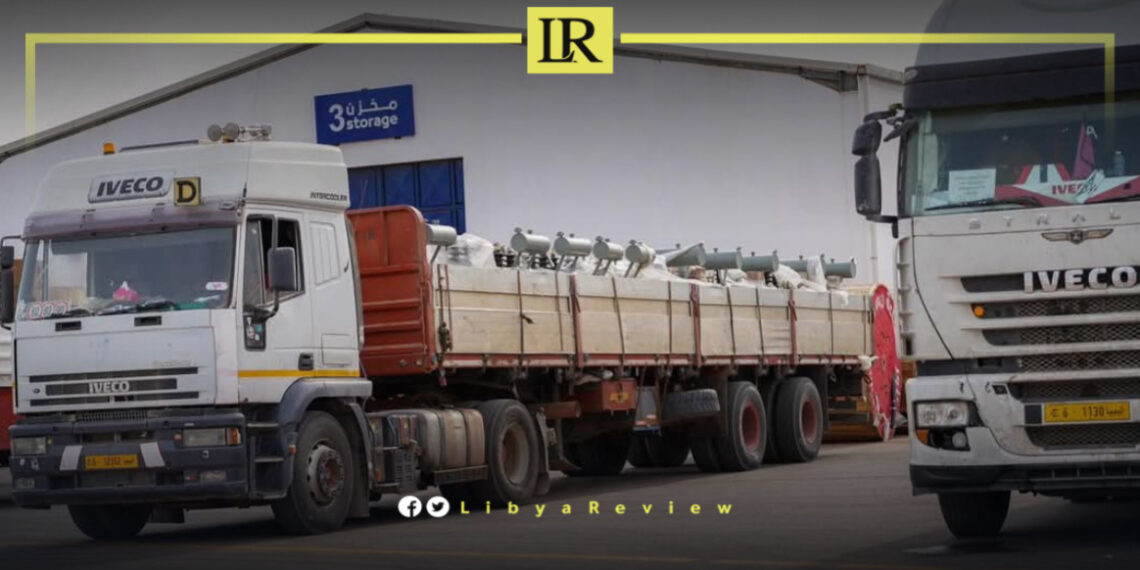On Sunday, Libya’s Parliament-designated government sent 12 trucks loaded with electrical equipment and supplies to the city of Tarhuna, located southeast of Tripoli.
The initiative, aimed at stabilizing the city’s power grid and repairing infrastructure damage, was carried out under the direct orders of Field Marshal Khalifa Haftar, the Commander-in-Chief of the Libyan National Army (LNA), and was overseen by Prime Minister Osama Hammad.
The shipment includes transformers of various capacities, wooden electricity poles, high-voltage insulators, circuit breakers, and thousands of meters of electrical cables and wiring. These materials are expected to help restore power stability in Tarhuna, a city that has suffered from frequent blackouts and years of neglect due to political instability and armed conflicts.
While the delivery is positioned as a humanitarian and infrastructure-focused effort, it also carries significant political implications. Tarhuna is located within territory controlled by the Tripoli-based Government of National Unity (GNU), led by Abdul Hamid Dbaiba.
The decision by the eastern-based government to provide assistance in a western Libyan city highlights the ongoing power struggle between Libya’s two competing administrations. Over the past years, both factions have used infrastructure projects and public services as tools to expand their influence and gain political leverage.
Since the fall of Muammar Gaddafi in 2011, Libya has been divided between rival political and military factions, each vying for control over territory, resources, and state institutions.
One of Libya’s most pressing challenges has been its failing electricity sector, plagued by decades of underinvestment, war-related destruction, and ongoing political instability. Power shortages and blackouts have been a persistent issue across the country, affecting residential areas, businesses, and essential services.
The lack of a unified national authority to oversee power generation and distribution has further exacerbated the crisis, with each government implementing separate and often competing energy policies.
In recent years, Libya’s power infrastructure has deteriorated due to ongoing conflict, fuel shortages, and corruption within the sector. While both governments have announced plans to improve the electricity grid, political rivalries continue to stall large-scale national projects, leaving millions of Libyans struggling with unreliable power access.


